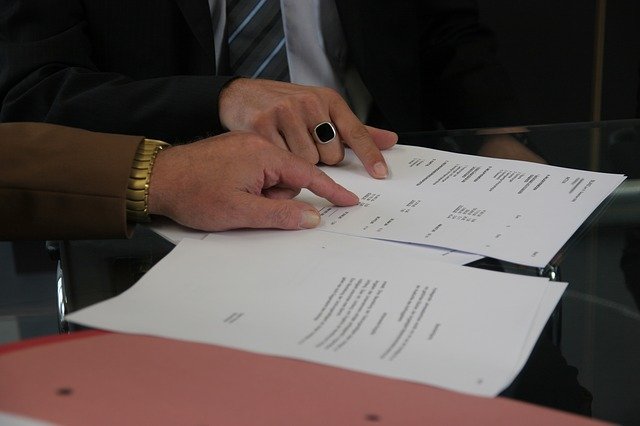Calculating Costs: How Insurance Companies Determine Premiums for 9 Forms of Business Coverage
The price you pay for various forms of business insurance depends on a wide range of factors, including everything from local crime rates to your history of workplace injuries. While some of these elements are market-driven and beyond your influence, others you may have some degree of control over. If you understand how insurance companies determine premiums for… Read More »

The price you pay for various forms of business insurance depends on a wide range of factors, including everything from local crime rates to your history of workplace injuries. While some of these elements are market-driven and beyond your influence, others you may have some degree of control over. If you understand how insurance companies determine premiums for the policies you hold, you can take action to mitigate any controllable factors driving up costs.
Whether you’re a new business owner shopping policies to insure your business or you already have coverage and want to reduce your liabilities, understanding how the following policy premiums are calculated can help you make strategic decisions and reduce insurance costs.
I. Workers Compensation Insurance
Workers’ comp insurance covers employee workplace injuries and occupational illnesses. The insurance policy can pay for an employee’s medical bills, lost wages, and death benefits in the case of a fatality. You’ll typically need this cover to legally operate in your state once you’ve hired a certain number of employees.
Your insurer will calculate your worker’s comp premiums based on:
- The rate assigned to your state industry classification code
- Your experience modifier rate (a future risk evaluation by your insurer based on your workers’ comp claim history)
- The number of people you employ
- Your total payroll amount
II. Commercial Auto Insurance
Commercial auto insurance, which has several components, covers your business fleet. When an employee is found liable for car accident-related bodily injuries or property damage to third parties, auto liability insurance may pay for these costs. Plus, comprehensive insurance and collision insurance cover your fleet against physical damage or loss due to accidents, theft, fire, and vandalism.
In most states, you’ll need to carry auto liability insurance to cover the risks your fleet poses to other road users. Factors that determine your commercial auto insurance rates include:
- Claims history
- Vehicle type
- Mileage
- Type of coverage and deductibles
- Policy limits
- Fleet size
III. General Liability Insurance
General liability insurance shields businesses against claims involving third-party bodily injury, property damage, and advertising injury. It may help pay for medical expenses and legal fees resulting from such third-party claims or lawsuits.
Typically, your insurer will assess your insurance rate based on your risk level and the amount of coverage needed. Factors like the size of your premises, claims history, and industry usually determine the overall cost.
IV. Commercial Property Insurance
If a covered hazard like theft, fire, or certain natural disasters causes damage to business property, commercial property insurance can cover the costs associated with building repairs and equipment replacement. It can protect most types of business operations, including manufacturing, retail, and service.
How much insurers charge for commercial property insurance depends in part on the value of the business’s physical assets. Other factors include risk-mitigating measures, such as fire and theft protection.
V. Professional Liability Insurance
Professional liability insurance covers error, omission, and negligence claims made by clients against a service-providing business. To determine premium amounts, insurance providers evaluate:
- The business’s industry or specialty’s risk profile
- Professional experience
- Location
- Business size
- Policy limits
VI. Product Liability Insurance
Product liability insurance pays for physical or financial harm that a defective product may cause a third party. Do you manufacture, install, modify, or sell manufactured products? If so, you may need this protection. Your rate will depend on:
- Product type and the associated risks
- How you market the product to consumers
- Your product defect history
- Product safety features in place
VII. Business Interruption Insurance
Should a covered event, like fire damage, interrupt your operations, a business interruption policy may compensate you for any profit loss you incur. It can also help pay for your operating expenses, including rent, staff salaries, and utility bills.
The policy’s costs depend on factors like:
- The amount of profit at risk
- Potential interruption duration
- Covered cash outflows
VIII. Employment Practice Liability Insurance
An employment practice liability insurance (EPLI) policy can pay for legal costs if an employee sues their employer for reasons like discrimination, wrongful termination, or privacy invasion.
Factors influencing EPLI costs can include:
- Your business’s EPLI claims record
- Risk profile based on your industry
- Business revenue
- Employee turnover rate
IX. Cyber Liability Insurance
Cyber liability insurance may shield you against loss or expenditure resulting from a cyber attack. For example, it can pay for data breach legal costs, denial of service settlements, and forensic analytics. Cyber liability insurance costs vary based on factors like:
- Your coverage needs and policy limits
- Your legal responsibility for data security, especially if you outsource data storage and IT systems
- Network security
- Claims history
The Cost of Comprehensive Coverage
To give your business the best commercial insurance protection possible, you’ll need to identify your unique coverage needs. Then, figure out specific issues that can impact your rates over the long term. With these insights, you can find the right coverage for your business requirements and budget, then get to work on risk prevention. To get started, click here to learn more about different forms of business insurance, what these policies cover, and how much they typically cost.

